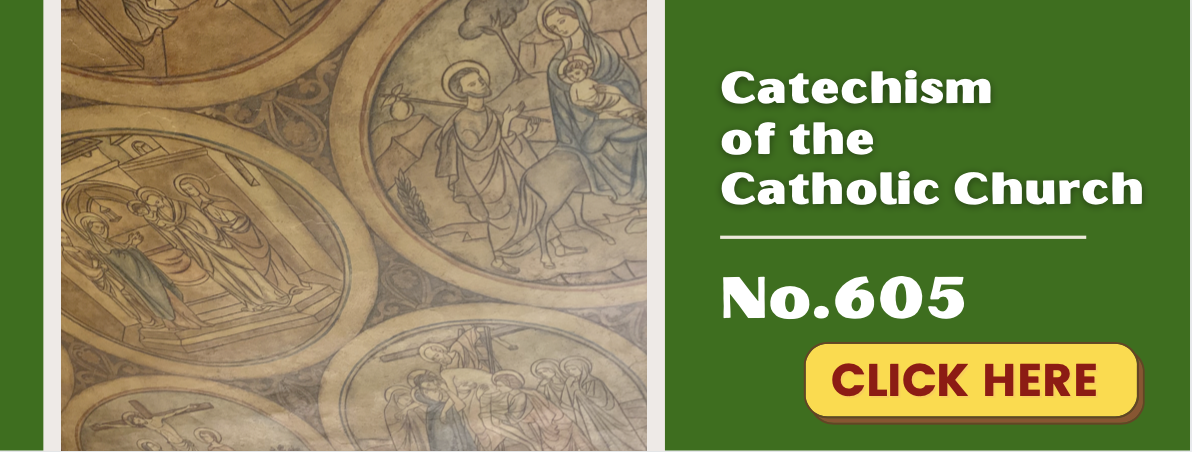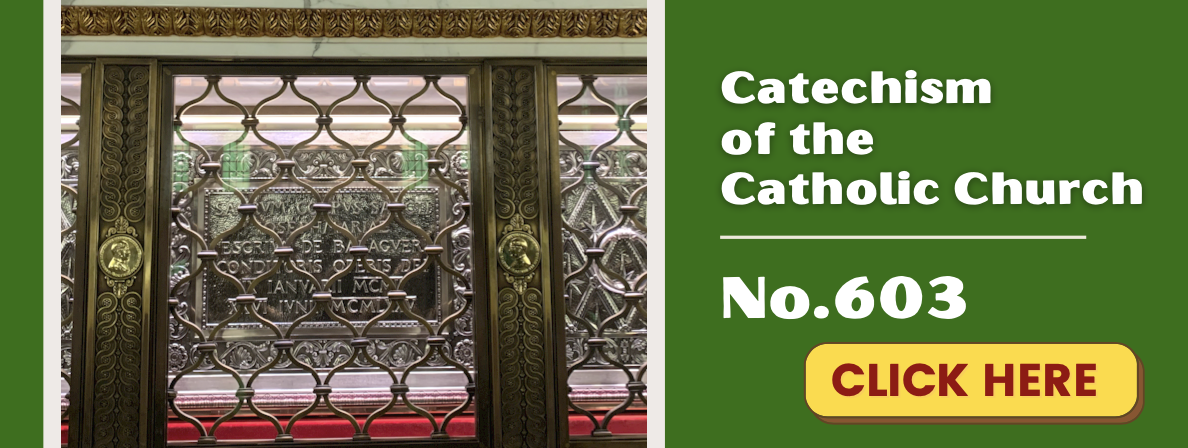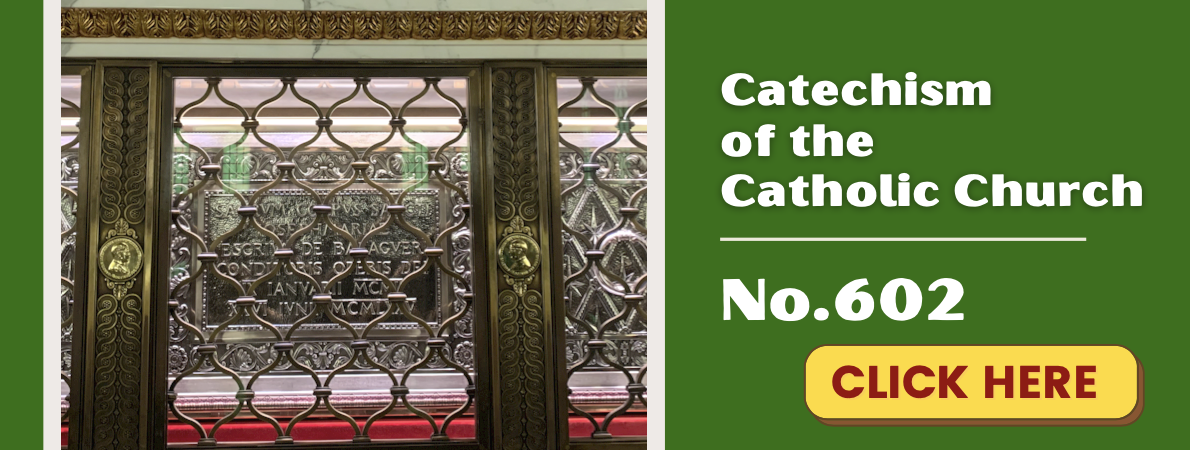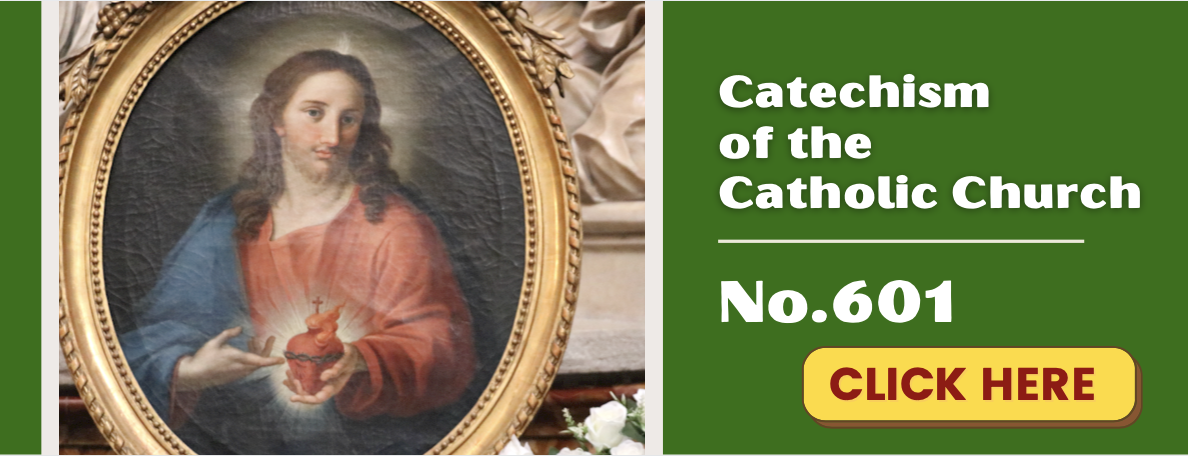Saturday of the Third Week in Ordinary Time



“For greater things you were born.” (Ven. Mother Luisita)
SATURDAY, JANUARY 29th Mk 4: 35-41 Jesus said: “Why are you terrified? Do you not yet have faith?”
Mary was the first to have Faith! “Behold, I am the handmaid of the Lord; let it be done to me according to your word.” (Lk 1:38) Surely Our Blessed Mother will help us grow in faith as we pray with the following reflection by Fr. Ed.
GROWING IN FAITH THROUGH THE HOLY ROSARY by Fr. Ed Broom, OMV
Jesus sent His Loving Mother, Mary most holy, from heaven to the small town of Fatima, in Portugal in the year 1917. The Queen of heaven and earth appeared to three little shepherd children, Lucia de los Santos and Francisco and Jacinta Marto—brother and sister.
Our Lady appeared six times and every time that she appeared she repeated the message: PRAY THE ROSARY! She revealed her name and identity as OUR LADY OF THE ROSARY. In Lourdes, Our Lady appeared 18 times to Saint Bernadette, and revealed her name and identity as THE IMMACULATE CONCEPTION.
Therefore, we would like to present ten reasons why we should form the most important habit of praying the Rosary, not sporadically or sometimes or simply upon an impulse. Rather, we should form the habit of praying the most Holy Rosary of the Blessed Virgin Mary every day; if possible, we could even pray the Rosary more than once a day, as was often the habit in the lives of many of the saints! Therefore, let us launch into reasons to convince us of the dire importance of loving Our Lady, by loving what she loves, and obeying her command—pray the holy Rosary!
1. OUR LADY TOLD US TO! If a mother repeats an order to her child many times, it is because the mother believes in the depths of her heart that the order she is commanding is of great importance. Likewise, Mary most Holy, the Mother of God and our Mother too, at Fatima commanded the children, as well as the world at large, six times to pray the Rosary! If it is a command to obey our earthly mothers (the 4th Commandment), how much more should we obey our Heavenly Mother, Mary most Holy!
2. THE ROSARY IS A BIBLICAL PRAYER. Many non-Catholics condemn the recitation of the Holy Rosary. However, very few of those who condemn this most beautiful prayer realize or recognize the fact that the Rosary is a prayer that almost totally has its origins in the Word of God itself! For example, the first series of Mysteries that we call the Joyful Mysteries are all of them found in the Gospel of Saint Luke, Chapters One and Two! This being said, we can get to know and love the Word of God by meditating upon the Mysteries of the Holy Rosary!
3. GETTING TO KNOW, LOVE AND IMITATE JESUS BETTER. Saint Ignatius of Loyola, founder of the Jesuits, and the instrument God used to give us the Spiritual Exercises, offers us a fruit that we should beg for when we meditate on or contemplate the life of Jesus; that fruit, or we might call it virtue, is to arrive at intimate knowledge of Jesus, so that we love Him more ardently and follow Him more closely. In a parallel sense, when we form the habit of praying the Rosary well, giving our whole self to entering into the scenes or mysteries of the Rosary, one of the most sublime fruits is the same that Ignatius presents. In praying the Rosary, we get to know Jesus, love Jesus, and desire to follow Jesus through the prayers and intercession of the first disciple of Jesus, His Mother Mary!
4. SUMMARY OF THE GOSPEL. Recent Popes, Blessed Paul VI and Saint John XXIII called the Rosary a summary of the Gospel. This was said even before the insertion of the relatively new mysteries of the Rosary, The Luminous Mysteries. In a short, clear, methodical and systematic form we have the Infancy of Jesus in the Joyful Mysteries; followed by the Luminous Mysteries, which are a good summary of the Public Life of Jesus (30-33 years of age). Then we have the Passion, suffering and death of Jesus in the Sorrowful Mysteries. Finally, as the summit of the whole prayer, we have the Glorious Mysteries, which of course present Our Lord’s Resurrection and Ascension into heaven, the Coming of the Holy Spirit, and Our Lady’s Assumption into heaven and Coronation as Queen of heaven and earth. As the Popes have alluded to, contemplation of the mysteries of the most Holy Rosary presents a clear and concise summary of the Gospels—the conception, life, death and Resurrection of Jesus seen through the eyes and heart of the Blessed Virgin Mary.
5. MARVELOUS PRAYER THAT CAN LIFT US TO THE HEIGHTS. The Rosary is indeed a marvelous prayer that can lift us to the heights of holiness if prayed well and with perseverance. This prayer is vocal in that we vocalize the beautiful prayers, the Our Father and Hail Mary. Then it is a meditative prayer in that we reflect upon the meaning of the mysteries and how they can be applied to our own lives right now. Furthermore, it is a contemplative prayer, meaning that we are summoned to enter into the scenes or mysteries of the lives of Jesus and Mary. We are not called to be passive spectators, like going to a movie; rather we are called to enter into these contemplative scenes and become part of the lives of Jesus and Mary! If this is done, we become transformed. The saying is true: tell me with whom you associate and I will tell you who you are. How true if we apply this to our frequent association, contact and conversation with Jesus and Mary and Saint Joseph! We will be transformed, becoming more like them. Our desire and goal are the words of the great Apostle Saint Paul: “It is no longer I who lives, but Christ who lives in me.”
6. PRAYER OF PEACE OF MIND, HEART AND SOUL, AND WORLD PEACE. In a world in which there is so much tension, fighting, selfishness, and egotism, we need a peace-program. Of course the key element is to expel the negative with the most positive, and that is to place Jesus and Mary as King and Queen of our world, country, state, city, home, family, and even our individual lives and hearts! At Fatima Our Lady insisted that the Rosary be prayed to end World War I and also to prevent another war. Our Lady made the warning that if the world did not pray enough, another and worse world war would erupt. And so it happened! Sad to say, not many years after the cessation of World War I, the more bloody and gruesome World War II broke out. Sin is due to a lack of the presence of God. The recitation of the most Holy Rosary is the opposite. We invite Jesus into our hearts, families and society through the prayerful, peaceful, but powerful presence of Our Lady, Queen of Peace!
7. CONQUERING VICES. Sin can get a hold of us, and we become slaves to sin. Jesus Himself says that sin is slavery. A well-known convert once said that before becoming Catholic, he liked going to book stores to look over the books and buy some of them. However, while there, no matter how hard he tried, he could not resist, almost as if he were drawn by a magnet, checking out and browsing through the bad magazines. Though he was still a Protestant, he started to pray the most Holy Rosary, and immediately, his desire to look at the indecent magazines left him totally. He attributed this miracle to the intercession of the Blessed Virgin Mary and the Holy Rosary. Among the many virtues that Our Lady desires to attain for us is the virtue of purity. One of Our Lady’s messages in Fatima was that most souls are lost for all eternity due to the sins of the flesh, that is to say, sins against the virtue of purity. Jesus expressed this most clearly in one of the Beatitudes: “Blessed are the pure of heart; they will see God.” (Mt 5:8)
8. FAMILY UNITY. One of the most sorrowful realities in the modern world is the breakup of the family unit. Vatican II calls the family the domestic church. Pope Saint John Paul II says “the family is the basic cell of society, and as the family goes, so goes the rest of society.” After the attack on the World Trade Center, Sept. 11th 2001, Pope Saint John Paul II published a spiritual masterpiece with the title Blessed Virgin Mary and the Rosary. We encourage all of our readers to read and meditate upon this spiritual masterpiece so as to get to know and love the most Holy Rosary more and more. In this papal document the saintly pontiff encouraged the world at large to pray the Rosary, but especially for two intentions. First, he exhorted us to pray the Rosary for world peace. Second, he warmly encouraged us to pray the Rosary for the sake and salvation of the family. The Rosary priest, Father Patrick Peyton, expresses this truth in these timely maxims: “The family that prays together stays together” and, “A world at prayer is a world at peace!” This being said, every family should make a concerted effort to pray the Rosary together for the sake of their own family, as well as for all the families of the world, and that peace would reign in the world starting first and foremost within our own individual hearts!
9. THE ROSARY AS SPIRITUAL SLINGSHOT TO CONQUER THE DEVIL. In one of the most important meditations in the Spiritual Exercises, with the title The Two Standards, Saint Ignatius presents our spiritual life in the light of a fierce combat between Satan and his disciples fighting against Jesus and His disciples for dominion in our souls! Given today’s materialism, consumerism, hedonism, agnosticism, moral relativism, and militant atheism, the devil can hide behind each of these erroneous philosophical systems to trap us and finally enslave us! It almost appears as if we are David against Goliath (I Samuel 17)!
David was much younger and smaller, with no military preparation, no sword, no shield, nor even any armor. On the other hand, Goliath was a giant, with much experience in battle, wearing armor and wielding a huge crescent sword that he had used to kill many, with a shield bearer preceding him. Goliath curses little David, but David proceeds with confidence in the name of Yahweh, the Lord of Lords and King of Kings. The little shepherd boy approaches the line of battle quickly and resolutely, reaches for a stone, places it in his slingshot and launches it at Goliath. The stone takes off like a rocket and rivets itself in the forehead of Goliath, who quickly cascades to the ground. As the giant lays unconscious on the ground, David wields the sword of Goliath and cuts off his head! Victory!!!
Today we are surrounded by many Modern Goliaths, as mentioned and named above. Therefore, for us to win the fierce battle, we must place ourselves under the military leadership of the Blessed Virgin Mary, carry proudly our spiritual weapon— the most Holy Rosary, and use it frequently and confidently. We have sure hope with such a weapon and so great a leader that the battle will be won and the victory will be ours!
10. SPIRITUAL TREASURES STORED UP IN HEAVEN. One of the greatest saint-mystics in the Catholic Church is Saint Gertrude, the Great. Not only is she the author of the classic Herald of Divine Love (read it!!!), but also she was a great mystic and visionary. Jesus often would appear to her and talk to her with great familiarity and love, as He desires to do with us. On one occasion, the saint saw Jesus in heaven. The scene was beautiful! Bathed in light and beauty, Jesus had a huge pile of coins, shiny and glimmering golden coins. As Saint Gertrude contemplated this scene, Jesus placed another golden coin on the top of the huge pile. Curious as to the meaning of the scene, this great lover of Jesus and Mary, Saint Gertrude, begged the Lord to explain its meaning. Without any hesitation Jesus said that those golden coins were the many fervent Hail Marys that Gertrude had prayed, and that she had just finished another, upon which Jesus was depositing another golden coin for all eternity. Therefore, if you want to be a multi-billionaire in heaven, start right now and pray the Rosary, pray the Hail Marys that compose the Rosary. Indeed, Jesus through the intercession Mary, His Mother, the Mother of the Church, and your loving Mother, will store up for you abundant treasures in heaven.












